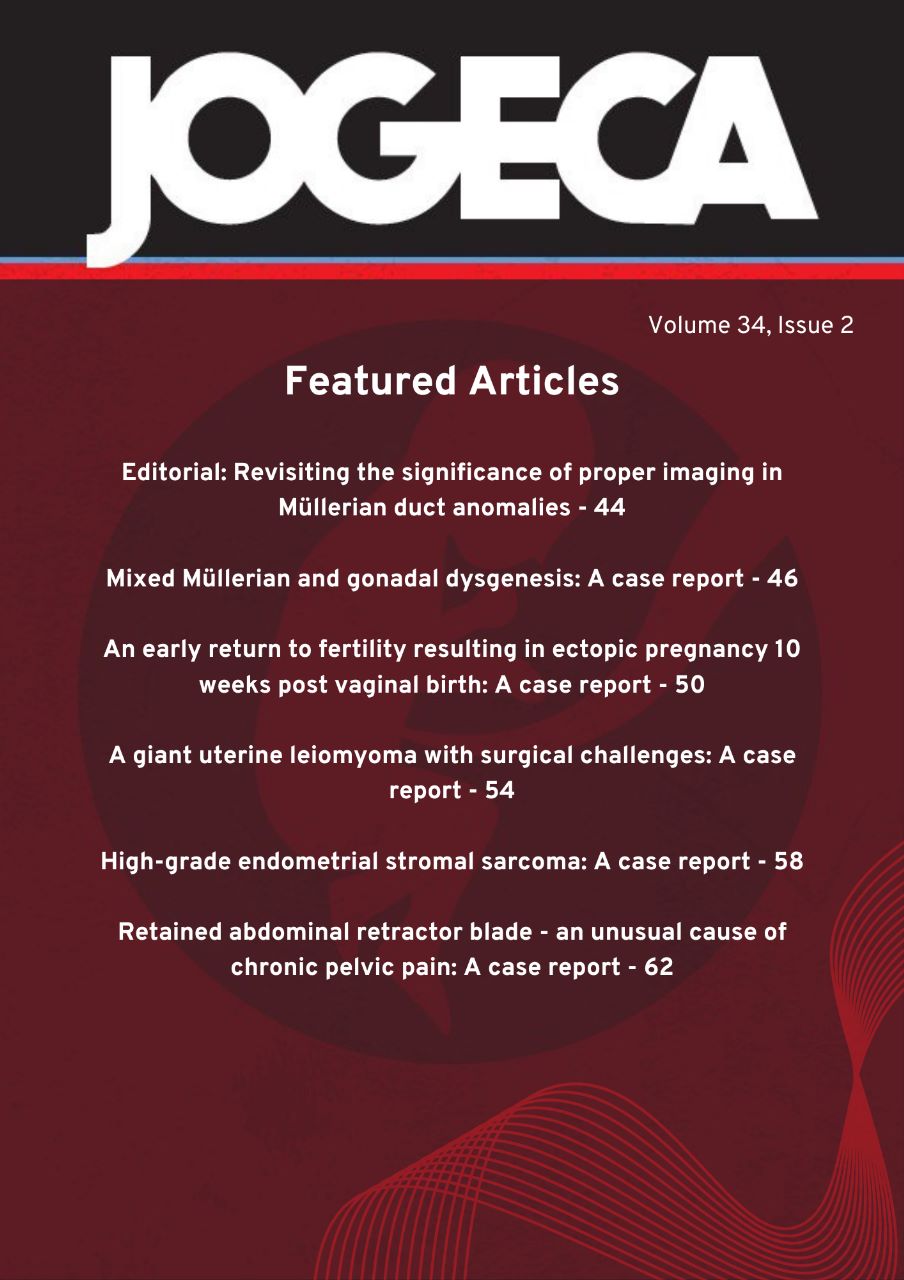Rhesus alloimmunization in pregnancy. A Tertiary Care Center Experience in Kenya. A Case Report
DOI:
https://doi.org/10.59692/jogeca.v36i1.178Abstract
Background: Rhesus alloimmunization is a significant cause of perinatal morbidity in sub-Saharan
Africa.
Case presentation: A 28-year-old para 2+2 gravida 5, rhesus-negative mother with no living child
presented to the Kenyatta National Hospital (KNH) antenatal clinic at 20 weeks of gestation as a referral
because of a bad obstetric history secondary to rhesus D alloimmunization following a positive indirect
Coombs test. She was started on methylprednisolone, and serial middle cerebral artery peak systolic
velocity (MCA-PSV) monitoring was performed until 32 weeks of gestation when the fetus developed
hemolytic disease of the newborn diagnosed via cordocentesis. She underwent two sessions of
intrauterine transfusion and had a successful cesarean delivery at 34 weeks and 1 day of gestation. The
neonate was admitted to the KNH neonatal intensive care unit where he was managed for hemolytic
disease of the newborn, 33 days after which he was successfully discharged home.
Conclusion: The role of maternal-fetal specialists in the diagnosis, antenatal follow-up, and timely
management of rhesus D alloimmunization is key in the prevention of adverse perinatal outcomes.
Downloads
Published
How to Cite
Issue
Section
Categories
License
Copyright (c) 2024 The authors.

This work is licensed under a Creative Commons Attribution 4.0 International License.




